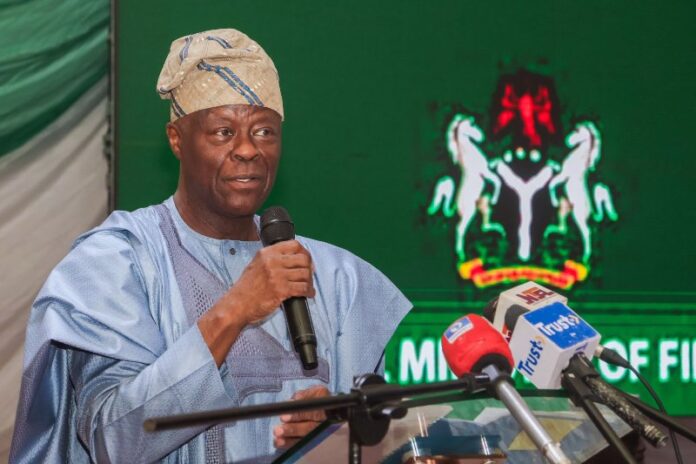The minister of finance and coordinating minister of the economy, Mr. Wale Edun, said the federal government has so far disbursed N330 billion in cash transfers to poor and vulnerable Nigerians through the National Social Safety-Net Coordinating Office (NASSCO).
Edun, who disclosed this yesterday at a press conference in Abuja, said the government had resumed full implementation of the national social safety net programme, – which faced delays earlier this year due to the integration of biometric data through the National Identity Number (NIN).
He confirmed that 8.5 million households—out of a targeted 15 million—had so far received at least one tranche of the N25,000 monthly payment, while some received up to three tranches. Each household is expected to receive three payments in total.
“We are pleased to report that the social protection programme – the putting in place of a safety net to help people cope with the rising price level – is now firmly back on track. So far, 8.5 million households have received at least one tranche of N25,000. Some have received two or three payments. The remaining seven million households will be paid before the end of the year,” the minister declared.
He said the intervention was part of President Bola Tinubu’s strategy to cushion the impact of subsidy removal and exchange rate reforms on the poorest Nigerians.
The programme, partially funded by an $800 million World Bank loan, was originally structured to provide N5,000 monthly over six months.
However, the Tinubu administration raised the payout to N25,000 over three months, following widespread economic hardship triggered by the removal of fuel subsidy and a sharp currency devaluation.
The minister said about 19.7 million poor and vulnerable households, representing more than 70 million individuals, had been captured in the national social register (NSR).
The minister explained that, going forward, the programme would be provisioned in the annual federal budget to ensure sustainability.
“We now have the basis for a modern social protection system that can provide targeted assistance to the poorest and most vulnerable on a long-term basis,” he said.
Providing further details, the national coordinator of NASSCO, Mrs. Funmi Olotu, said the staggered payments were due to the president’s insistence on linking disbursements to NIN to ensure transparency.
“Mr President said no more traditional way of giving them payments: pay directly into the account,” Olotu told reporters. “So, why some have received three and some have received two and one is because Mr. President said we should link the NIN to the NSR so that we do direct debit transfer,” she added.
The NSR, which is being used as the basis for targeting beneficiaries, contains data on over 70 million individuals from about 19.7 million households. It was developed in partnership with the World Bank using over 40 socioeconomic indicators to ensure that the most vulnerable are correctly identified.
“The NSR is not a political register. The minister of finance cannot give me names to put on the register. Mr President cannot give me names to put on the register,” she said.
Olotu disclosed that over 10.2 million NINs had been collected, and about 9.6 million had already been verified by the National Identity Management Commission (NIMC).
The disbursement system is designed to be biometric-based and digital, with funds transferred either to recipients’ bank accounts or mobile wallets.

























































